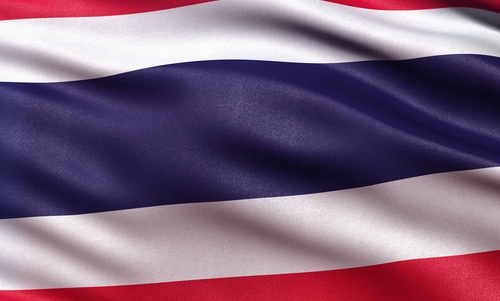On the one-year anniversary of the military coup of 22 May 2014, the ICJ urges Thailand to restore democracy and the rule of law, revoke the repressive laws passed since the coup, and ensure that any revised Constitution meets international human rights and rule of law standards.
“The National Council for Peace and Order (NCPO)’s year in power has been marked by the passage and implementation of numerous repressive laws including restrictions on freedom of expression and assembly, and an interim Constitution that gives the head of the NCPO sweeping powers while placing the NCPO and its agents above the rule of law,” said Wilder Tayler, Secretary General of the ICJ.
“Thailand must reverse this steady slide away from its international obligations by promptly returning the country to democracy, civilian authority and the rule of law,” he added.
Since 20 May 2014, the Thai military has progressively replaced civilian power with military rule by implementing martial law throughout the country (lifted in most provinces on 1 April 2015 except for those areas where it was already in place before 20 May 2014), staging a coup d’etat on 22 May 2014, dissolving the caretaker government, suspending the 2007 Thai Constitution (other than the Chapter concerning the King), issuing over 300 orders and announcements that include placing restrictions on freedom of expression and assembly and extending the jurisdiction of military courts to civilians, and appointing a Cabinet with more than one-third military membership.
On 22 July 2014, the military junta promulgated an interim Constitution that gives the NCPO sweeping, unchecked powers.
Such powers are wholly inconsistent with the fundamental pillars of the rule of law and human rights, including equality, accountability, and predictability of the law, the ICJ says.
“What we are observing is the steady entrenchment and implementation of an institutional and legal framework inconsistent with international human rights standards, which is contrary to the NCPO’s repeated promises that military rule is only a temporary measure while political reforms are undertaken,” Tayler said. “Even though elections are now predicted to take place no earlier than August 2016, Thailand must immediately begin the process of revoking all laws that are inconsistent with its international legal obligations and the rule of law.”
For instance, Article 44 of the interim Constitution gives the head of the NCPO unfettered power to give any order deemed necessary for “…the benefit of reform in any field and to strengthen public unity and harmony, or for the prevention, disruption or suppression of any act which undermines public peace and order or national security, the Monarchy, national economics or administration of State affairs.”
Article 47 provides that all NCPO announcements and orders given since the coup and up until the National Council of Ministers takes office “…regardless of their legislative, executive or judicial force…,” are also “… deemed to be legal, constitutional and conclusive”; and Article 48 states that all those carrying out acts under orders of the NCPO in relation to the coup, even if the acts are illegal, “…shall be exempted from being offenders and shall be exempted from all accountabilities.”
Read also:
A more detailed summary of the state of human rights in Thailand since the military coup is available in the ICJ’s recent submission to the UN Committee on Economic, Social and Cultural Rights
Contact:
Olivier van Bogaert, ICJ Director Media & Communications, t: +41 22 979 3808 ; e: olivier.vanbogaert(a)icj.com




